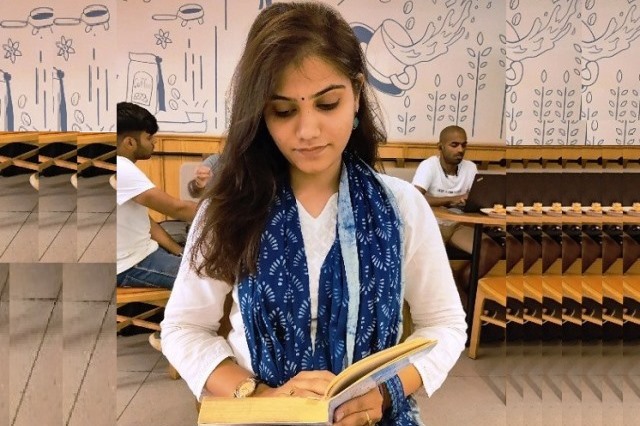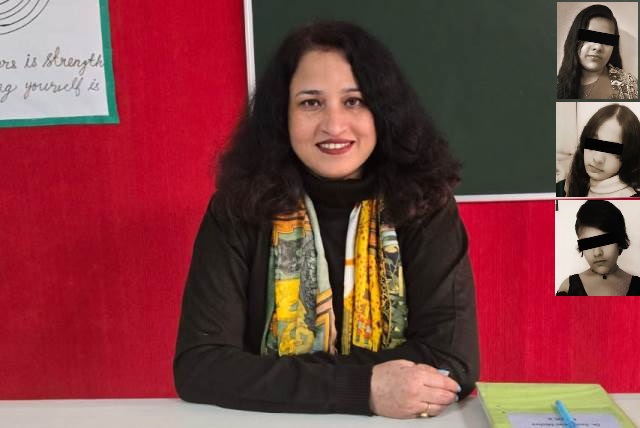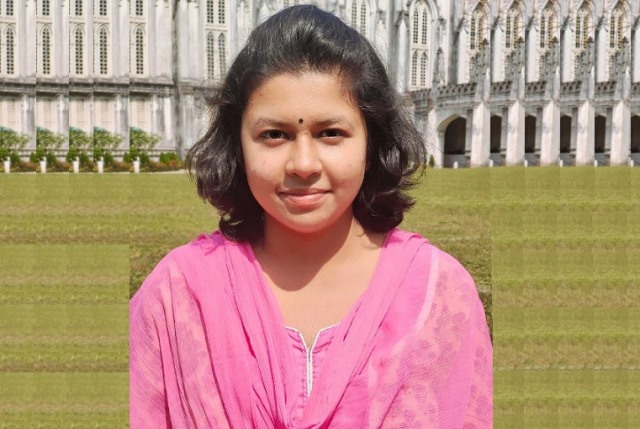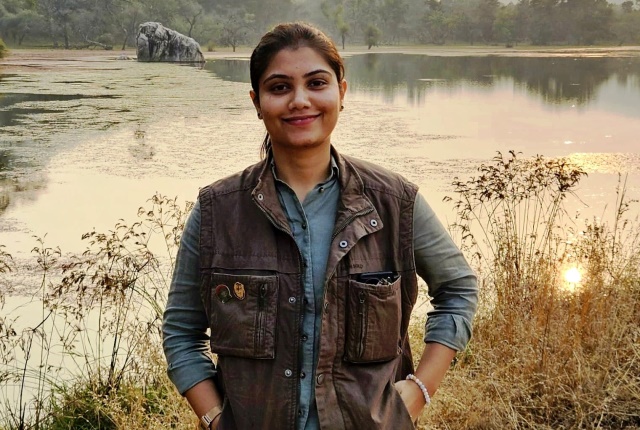
‘Radhika Yadav’s Death Isn’t About A Disturbed Father. The Malaise Runs Deeper’
Aayushi Rana, a Dellhi-based fact-checker & researcher, yearns for a society where daughters feel safe to share their dreams, dilemmas with parents. Her views:
We often assume that modernity and education automatically brings progressive thinking, but sadly that’s a myth. Deep-seated patriarchy and male-driven control & entitlement can thrive even in urban, seemingly ‘modern’ spaces. The cold-blooded killing of budding tennis player Radhika Yadav by her father is a glaring case in point.
There are still speculations: What could have led the father to pump bullets into his talented daughter’s back while she was cooking at home in upscale Sushant Lok, Gurugram? Was it the tennis academy she ran, and her high national rankings in the game? A music video she made last year? Wounded pride? Or, it something else entirely?
If a social media ‘reel’ triggered the act, then we need to ask why something so small is threatening to a father. Many children, especially girls, want to be seen and heard. But, despite social progress, parental environments are often lacking in emotional presence, especially when it comes to girls asserting their voice or identity.
This system of control over how daughters must think and feel, how they must live their everyday life, how they should dress and express themselves, is not only outdated, but also extremely dangerous. Neither children nor adults can thrive in an environment built on surveillance and dominance. And contrary to what many parents believe, control does not lead to discipline—it often creates rebellion, secrecy, or trauma.
We must stop reducing such incidents to ‘personal madness’. This is not only about one disturbed father; it’s a reflection of a violent system of gendered control that continues to fester in our homes. It calls for a deep reflection on how we raise boys, define fatherhood, and whether we truly understand what it means to let our children be themselves fully and freely.
This assessment is, sadly, deeply rooted in the ‘lived reality’ of many girls. From a psychological lens, repeated invalidation during early years—being made to feel ‘less’, can lead to deep-seated patterns of self-doubt, anxiety and rebellion, which are often misunderstood. What is heartbreaking is that mothers, too, sometimes, because of ‘internalised patriarchy’ or survival within rigid family structures, become complicit in this inequality.
Although there has been a visible shift in attitudes over the years, this subtle alienation still persists, especially behind the closed doors of urban or ‘modern’ homes. Undoubtedly, parents worry more about their daughters’ safety in today’s world, but that concern must not come at the cost of their freedom, or reduce daughters to a ‘problem’ to be protected from the world.
It works both ways; daughters, too, must feel safe enough to share their dreams, struggles, dilemmas and choices with their parents. And, in turn, parents must strive for openness, understanding, and balanced guidance, without disproportionate expectations based on gender. This balance between emotional presence and reasonable boundaries is the foundation of meaningful parenting.
There is no set rule for what makes a ‘perfect’ parent. However, one thing is universal: every child wants to be seen, heard, and valued. And perhaps the least we can do, as parents or adults, is to meet them there with grace, patience, and empathy.

When it comes to the young being hooked to social media, instead of fear or control, we need conversation and curiosity. Social media is not just a distraction; it’s a space where young people explore identity, find community, and, often, escape. For daughters especially, it becomes a double-edged sword, empowering in some ways, but also opening spaces for exposure which can be dangerous or difficult to handle. The answer is not surveillance, it’s trust.
ALSO READ: ‘We Failed Radhika, Let’s Save Other Daughters’
Parents should begin by building that trust early: sit with them while they scroll, take genuine interest in what they are watching or creating, and ask questions like “What do you like about this content?”, “What are you learning from it?”, or, “How do you feel when you see this?” These aren’t interrogations, they are invitations. Curiosity, not criticism, can help the young reflect on their choices and understand their online world more mindfully.
Beauty and anxiety have, sadly, become intertwined for girls on social media platforms. Constant exposure to unrealistic beauty standards, filters, and comparisons can distort their self-worth. It can have a long-term impact.
Parents can play a powerful role here, not by pulling them away from the screen, but by making sure that they are seen, heard, and valued in real life. Instilling values — that inner beauty, idealism, strength of character, compassion and sharing, are more important. When a child feels secure offline, they are less likely to seek validation online.
The goal is not to remove the phone, but to become a space more comforting and meaningful than any algorithm ever could.
Social media doesn’t create insecurity; it amplifies it. What we see—be it filters, curated beauty, or ‘coolness’– is often a reflection of a deeper societal hunger for validation. Girls and boys are exposed to impossible ideals.
Let’s remember: they are learning by watching us too. When adults mock appearance, shame bodies, or consume similar content in silence, we send mixed signals.
Instead of shaming, we must equip them with critical thinking: why do we feel the need to present ourselves in a certain way? Who benefits from these insecurities? Let’s teach them not to reject themselves, but to question the world that asks them to.
Social media isn’t inherently toxic; it’s a mirror of the world we have created. Yes, it’s chaotic, overwhelming, full of distractions, but it’s also where young people are thinking, learning and connecting. I have seen students use it to speak up on issues they care about, access mental health resources, learn new skills, find community, or just feel less alone in a noisy, impersonal world.
For many, especially those growing up in restrictive environments, it’s not just a platform, it’s a lifeline. The real issue is not the screen; it’s the silence at home. When we don’t give our children the space to express themselves, they turn to the digital world that does.
Instead of writing off these platforms with moral panic, adults need to show up, not just as watchdogs, but as trustworthy mentors. We need to teach kids how to engage critically, not just scroll passively. What are they watching? Why does it matter to them? What are they learning?
This isn’t about control, it’s about equipping them to handle a complex world.
(The narrator is also a digital forensics trainer, having conducted training sessions for journalists and students in India and abroad, on misinformation, fake news, digital safety and verification techniques. Her current work involves media literacy and socio-political research. She is a post-graduate in History from Aligharh Muslim Univesity)
As told to Amit Sengupta



